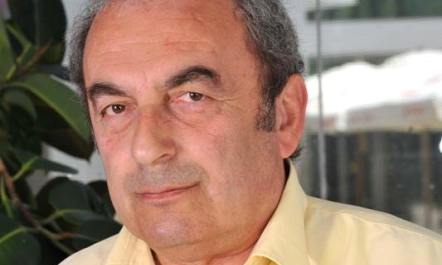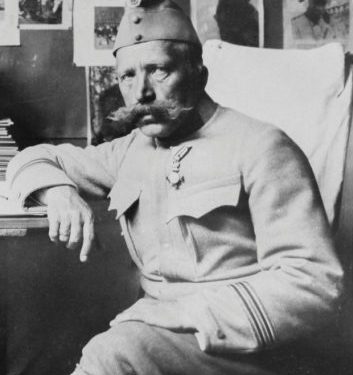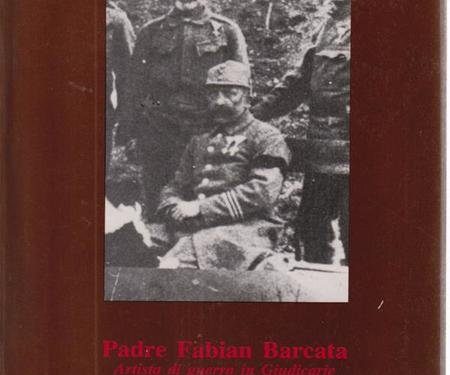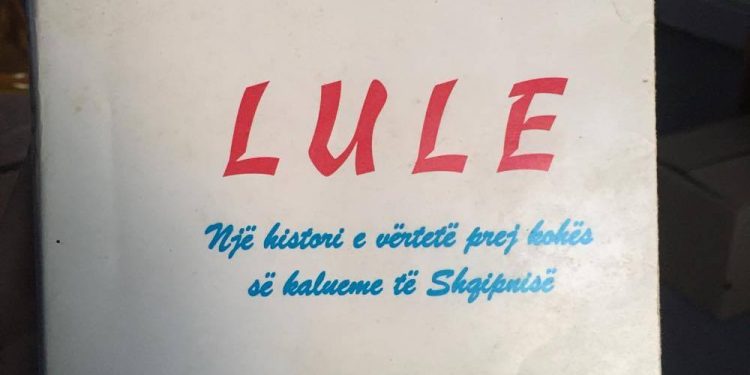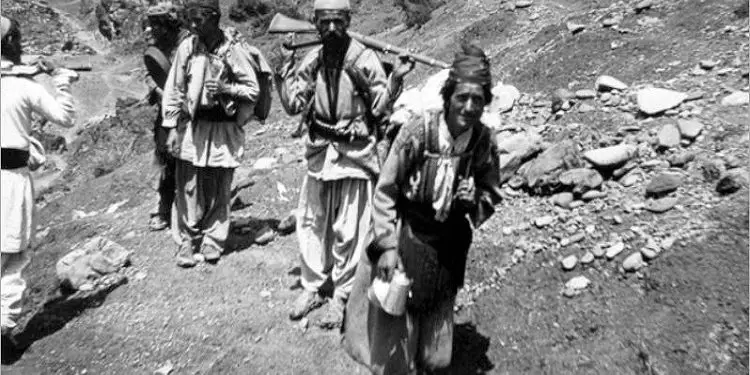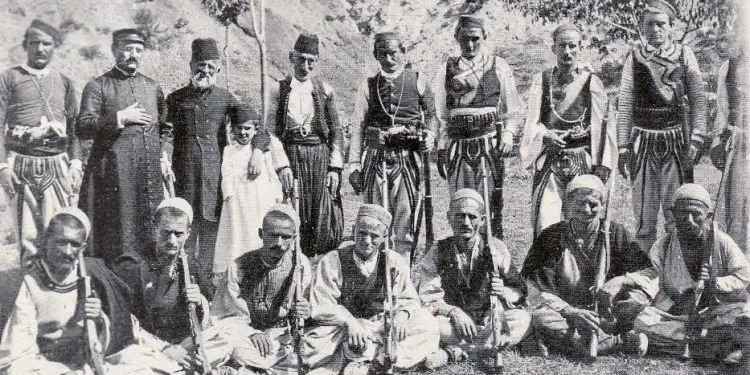Part two
Memorie.al / “My Albanian Diary” by the Austrian priest, Fabian Barcata, are published for the first time in Albanian by the publishing house “Mirdita,” on its one hundredth anniversary. It was written in 1905-1906 in Kryezez (Rubik) and was published twenty years later in the Franciscan magazine “Franzisziglöcklein,” Austria, in the years 1926-1927. This is the first genuine diary of a foreign priest about Albania. The name of Fabian Barcata, this mystic Austrian from the beginning of the last century, is almost unknown to today’s reader. This was also the case seventy years ago, until his book “Lule” (Flowers) was translated and published in the Albanian language, thanks to the care of Professor Karl Gurakuqi, one of the brilliant names of Albanian literature and culture, who died in Rome as a political emigrant in 1971.
Continues from the previous issue
A figure like Barcata honors Austria itself
“MY ALBANIAN DIARY”
(Excerpts from the diary…)
By Father Fabian Barcata
MALARIA
In Kryezez, to recover from malaria fever
April 30, 1905
Today I returned with everything I had from Alessio (Lezha). The malaria fever had tired me out a lot lately. On the way, I had to stop and rest twice, and when I arrived here, I was shaking so much that I couldn’t control myself. A festive welcome! From up high, where the church and the parish were located, rifle shots could be heard. Between the shots, the sweet sound of the church bells could also be heard. All the people I met on the road greeted me with respect.
In front of the doors of the houses and huts stood the women, while in front of them ran the children, somewhat frightened, watching me with a finger in their mouth. A young woman with a child in her arms, who stood by me on the road, told me in a loud voice: “Sir, stay with us, the air of Kryezez will drive away the fevers of the illness.” I also believed this. The archbishop had sent me here to get well.
POVERTY
Sleeping in the rain
May 4, 1905
How poor the parish is. Certainly, Lezha didn’t spoil me either, but even the smallest comfort they gave me there is completely missing here. Last night it rained and I had to change my sleeping place four times, as it was dripping all over my room.
In the end, I had nothing left but to wrap myself in my tarpaulin. So I fell asleep and when I got up, I was completely soaked. The most pleasant thing is the fire in the kitchen, which is kept lit all the time. I sit near the fire for hours in a chair, especially when the malaria fever gets me.
THE CHURCH
A bleak panorama
May 5, 1905
Yesterday I complained about the conditions in my dwelling, and this is not fair at all, as God has not provided anything better in Kryezez. How poor the church is here! Four old walls and on them a bad, unfinished roof with stone tiles, and besides that, the ceiling is also missing. The altar is like a wall cube, where to climb on it, you have to pass over two stairs, which are also bricked up.
Above the altar, on the wall, a miserable image, painted on wood, is hung. There are only two wooden candle holders, which are also missing their feet. Instead of feet, they have put nails to hold them. The other candles are held in empty bottles.
The only decorations in the church are two old bunches of paper flowers, which have also lost their shape. Two small bottles made of gourds serve as wine holders. When I said the holy mass for the first time, my heart was heavy. I felt that I had to change something.
I immediately wrote for some new metal candle holders and asked the nuns in Kallmet to make me 4 new bouquets of flowers. The church also needs to be whitewashed, which I will do myself. Why did I go to painting school?
THE MOUNTAIN MAN
“A sensitive and faithful soul”
May 15, 1905
Today I made my first visit to a sick person. I was called to an old man who was dying. I went on horseback to the hut. There, a man took my horse. Through a low door, I entered the single room of the hut. In the room was only an old man, leaning against the wall, who was calmly smoking a cigarette. I looked around to find the sick person for whom I had been called, but I did not see him.
The old man had silently noticed my searching gaze. He finally said to me: “I am the sick one!” I was almost annoyed, as when I was called to visit the sick person, I was lying in bed, tired from fever. I had ridden for about two hours, affected by the fever, and I came to visit a man who was healthier than me. Did the man understand my annoyance? I think so.
He invited me to sit next to him, took my hand, and after putting it to his mouth and on his forehead, he began to speak to me and his voice became sweet, as if it hid an inner prayer: “O God, I see that you are also sick and it hurts my soul that I have called you. But do not regret your coming, for it was not in vain. I am dying and I want to pay the account I have open with God. Do you know that I am a great sinner and when the time comes for me to appear before God, I do not know what will save me except for your generosity?”
I heard his confession and it seemed to me that this time I had done enough. He wanted me to give him the final anointing as well. I resolutely objected, as this sacrament was only for people who were dying. “Sir, believe me, I will die soon.” During this time, the man’s relatives also came into the room, which joined his prayer. They also thought he would die soon. I was not convinced, but pushed by the prayers of the people; I gave this man the final anointing. After the ceremony, they prepared coffee for me, and I stayed for a while talking with this man.
He told me about the past, and it seemed to me that he had set a goal for him to only tell me the negative things he had done throughout his life. But the goal he had set for himself did not succeed. Behind every sentence he said, a sensitive and faithful soul was hidden. After we talked for about half an hour, he took the cigarette out of his mouth, lay down on the ground, took my hand, and after a few long breaths, he died.
THE DECISION
“In the room of the dead man, I made the decision… to become a doctor myself”
May 26, 1905
That young boy I visited yesterday has died. Oh, how it hurts my soul to see how young blood dies. He certainly would have been saved if he had had a doctor and medicine. In the room of the dead man, I made the decision to replace what was missing and to become a doctor myself. If these letters fall into foreign hands one day, they would laugh at the optimism with which I am writing; in relation to this goal I have set for myself.
To become a doctor when I have no school, no knowledge, no experience. I will not dare to heal complicated diseases, but common diseases that are healed with simple means. I will do this. I hope that for the means we lack, the great God will give us his blessing. What strengthens my conviction is the faith they have when they come and ask me from time to time about the illnesses they have.
THE HEALING
“I have truly become a doctor!”
September 5, 1905
I have truly become a doctor. A month ago, a woman came, a poor widow whose husband had been killed in a blood feud. She had six children, and the oldest was 14 years old. She brought her youngest child with her. This poor creature was 4 years old, but could not walk. His body was very swollen and hard to the touch; his limbs were not at all resistant and completely powerless. I had to help him, but how?
I felt I could not do anything, so I asked the woman to stay in the parish and sleep there and then I sent her with my horse, accompanied by a servant, to Kallmet, where the nuns were, who worked as doctors. In the evening she returned again very happy and calm, with two bottles of medicine she had gotten there.
After a week, she came again with the children, but this time very upset. “The child is not better at all!” and she begged and swore to me to help her. And so I did. What I gave her were some light medicines for the discharge of fluids. To tell the truth, I did not have much faith in the action of this medicine. But what happened? Three weeks later, that woman came to me and told me with eyes that shone, that the child was much better.
His body had shrunk and the child had now started to walk. She begged me to give her more medicine. Yesterday I went to the hut of this widow. At the entrance of the hut, my little patient stood up straight on his feet and without anyone’s help, took steps towards me. I took a small piece of sugar out of my pocket. Then I gave her a bag of beans and one with sugar for her mother.
Care had to be taken with the rules, so that the poor people would not be ashamed. If a friend came to the house, he had to be invited for coffee, even in the poorest huts. This is the sacred tradition. It is a shame if it does not happen. I had to guess that the most elementary thing was missing here.
MISERY
Meager harvests, from the great drought
September 20, 1905
The harvests have been very meager. The great drought was to blame for this fact. How will the poor people live this year? They are rightly complaining this time. A great burden is upon them. Most are deep in debt, their lenders are the merchants of Lezha, and they know no mercy at all. The price of corn, which until that time was very low, is now twice as much. / Memorie.al




